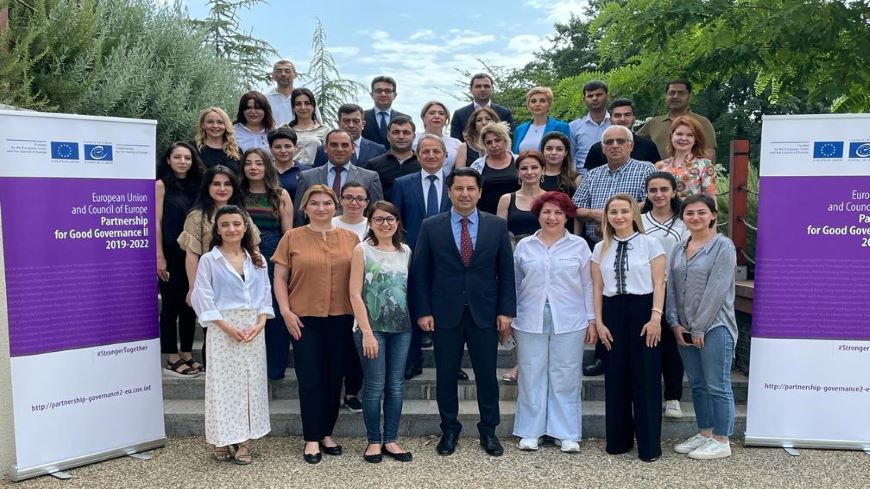A workshop on combating discrimination and promoting equality by enhancing the knowledge and practical competencies of the Ombudsman office staff, representatives of regional and local authorities and civil society organisation active in the field, was organised on 22-23 June 2022 in Lankaran.
Participants became acquainted with international and European standards, notably the Council of Europe work in this field. Focus of the presentations and follow up discussions was on understanding of the key concepts of human rights, the specifics of racism, hate crimes and discrimination, and the impact of prejudice and stigmatization on individuals. The training also aimed to improve skills of participants to support the victims of discrimination and apply the acquired knowledge through their further daily work and activities on combating discrimination and promoting equality. Presentations from some of the recently trained trainers, from the same project, linked standards and cases to the local context.
The specific topics that were covered with this training were rights to equality and non-discrimination, international and national human rights standards, gender related discrimination, identifying discrimination in education, discrimination of people with disabilities but also discussion on different grounds for discrimination including minority, religion, ethnic origin, with focus on instruments and mechanisms to prevent and combat inequality on all levels.
This activity was organised in co-operation with the Office of the Commissioner for Human Rights of the Republic of Azerbaijan in the framework of the project “Strengthening access to justice through non-judicial redress mechanisms for victims of discrimination, hate crime and hate speech in Eastern Partnership countries,” funded by the European Union and the Council of Europe and implemented by the Council of Europe in their Partnership for Good Governance II 2019-2022.





